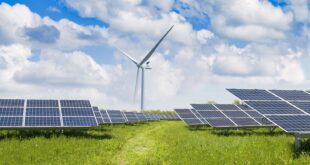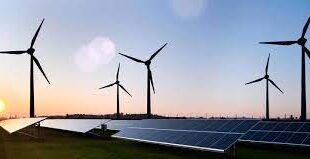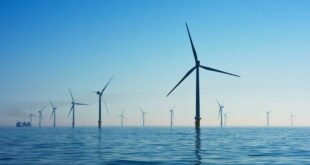The International Energy Agency released its latest in-depth review of the United Kingdom’s energy policies on Thursday. welcoming reforms that aim to promote decarbonisation and innovation in clean energy technologies.
The review specifically highlights the UK government’s track record in climate action. both at home and globally.
The United Kingdom has shown real results in terms of boosting investment in renewables. reducing emissions and maintaining energy security. said Dr Fatih Birol. the IEA’s Executive Director. It now faces the challenge of continuing its transition while ensuring the resilience of its energy system.
In 2017. energy-related CO2 emissions in the United Kingdom reached the lowest levels since 1888. The report finds that this rapid reduction was achieved in part through significant renewable investment following the United Kingdom’s Electricity Market Reform (EMR). By 2030. the United Kingdom is forecast to see its share of variable renewables pass 50%. Amid this rapid change to a power system with a high share of wind and solar. market rules will need to accommodate flexibility. including interconnections. storage and demand response to maintain electricity security.
This report highlights our reputation as a world leader in the global shift to greener. cleaner economies. cutting emissions by more than 40% since 1990 while growing our economy. said Chris Skidmore. the UK Energy and Clean Growth Minister. We can be proud of dramatically decarbonising our energy system thanks to record levels of investment in renewables. while security of supply has never been in doubt. But we’re not complacent and we’re now on a path to become the first major economy to legislate for net-zero emissions to end our contribution to global warming entirely.
The IEA review finds that outside of the UK power sector. there is still significant potential for improvements. Reductions in greenhouse gas emissions in line with the Paris Agreement on climate change will require the scaling up of clean energy investment in the transport and heat sectors. a major focus of the government’s Clean Growth Strategy.
According to the report. action in these sectors will require a broad mix of solutions including technology innovation and electrification. stimulated by fiscal policies and energy efficiency that can help offset higher power costs. Finally. streamlining regulation in electricity wholesale and retail markets will be critical to ensure more effective and competitive markets. This will support electrification for the longer-term decarbonisation of the economy by 2050.
The report also praises the United Kingdom for its robust energy security policies. The Maximising Economic Recovery Strategy. led by the new Oil and Gas Authority. has stabilised oil and gas production in the North Sea. However. the eventual decline of domestic production will make the United Kingdom more dependent on imports. That decline. combined with slow progress in adding new nuclear capacity as well as retirements of existing coal and nuclear plants. means imports of electricity and natural gas will remain critical for the United Kingdom in the medium term.
In the context of the United Kingdom’s planned departure from the European Union. the report underlines that open and efficient energy trade relations remain vital to safeguard existing security and flexibility benefits enjoyed by the UK energy system.
The review also highlights international collaborative efforts by the UK government to strengthen global energy governance. global climate action and technology innovation. These were illustrated by the joint international summit on carbon. capture. utilisation and storage that the United Kingdom and the IEA’s held in Edinburgh in 2018. the United Kingdom’s leadership of Mission Innovation as the Chair and Head of the Secretariat. and the United Kingdom’s role as a founding member of the IEA Clean Energy Transitions Programme. which supports key emerging economies in their energy transitions.
The United Kingdom is a strong partner for the IEA and its Member and Association countries in energy technology collaboration. said Dr Birol. The government’s efforts are an inspiration for many countries who seek to design effective decarbonisation frameworks.
 Iran Energy News Oil, Gas, Petrochemical and Energy Field Specialized Channel
Iran Energy News Oil, Gas, Petrochemical and Energy Field Specialized Channel




